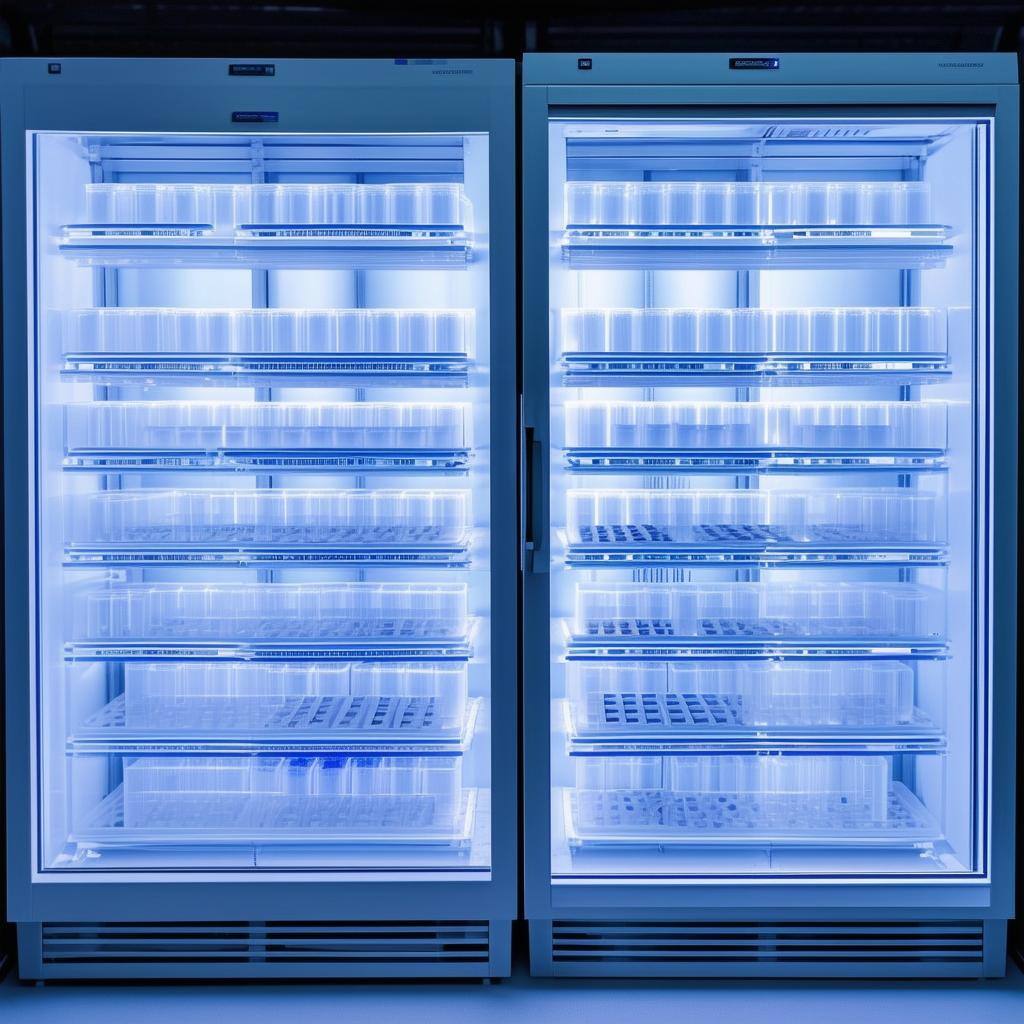How Biobanking is Transforming Precision Medicine
Written by: BioSample Connect Staff

Biobanking—the process of collecting, storing, and managing biological samples—has become an essential component of modern medical research. As healthcare shifts toward personalized, or precision, medicine, biobanks play a crucial role by providing the raw materials for breakthroughs in diagnostics, drug discovery, and treatment. By enabling the study of vast collections of human biological materials, biobanking is helping researchers unlock new insights into disease mechanisms and patient responses to therapies.
The Rise of Precision Medicine
Precision medicine is an approach to healthcare that tailors treatments to individual patients based on their genetic, environmental, and lifestyle factors. Unlike traditional "one-size-fits-all" treatments, precision medicine seeks to customize healthcare, ensuring that the right drug is delivered to the right patient at the right time. As The Lancet explains, this approach has been made possible by advances in genomics, data science, and biobanking, which provide the critical data needed to inform personalized treatments.
A key part of precision medicine is understanding how genetic variations affect individual responses to disease and treatment. Researchers rely on biobanks to study the links between DNA, health outcomes, and disease susceptibility, making these repositories essential for translating scientific research into clinical practice.
The Role of Biobanking in Research
Biobanks are collections of biological samples, such as blood, tissues, and DNA, along with corresponding health data. These samples, stored in controlled conditions, are used for research into a wide range of diseases, including cancer, neurological disorders, autoimmune conditions, and cardiovascular diseases.
By preserving these samples, biobanks provide researchers with access to vast datasets that can be analyzed over long periods of time. This enables the study of disease progression, identification of biomarkers, and understanding of population-level health trends. As noted by Nature Medicine, biobanking is instrumental in generating the large-scale datasets that AI and machine learning models use to make discoveries in drug development and disease diagnostics [source].
Key roles biobanks play in modern research include:
- Disease Mechanism Studies: Biobanks store samples from individuals with a range of diseases, enabling researchers to uncover how diseases develop at the molecular level.
- Biomarker Discovery: Samples from healthy and diseased individuals help identify biomarkers—molecules that indicate the presence or severity of a disease—which can be used for diagnostics or treatment decisions.
- Therapeutic Development: By studying genetic and molecular data from biobank samples, researchers can develop more effective, targeted therapies.
Biobanks and Genetic Research
Genetic research has experienced rapid advances, with biobanks providing a crucial source of genetic material for study. The UK Biobank, one of the largest in the world, has contributed to over 6,000 scientific publications, providing data on genetics, lifestyle factors, and diseases from half a million participants [source].
Large-scale biobanking efforts, such as the UK Biobank and the All of Us Research Program in the U.S., are designed to capture genetic diversity and improve the representativeness of medical research. This is critical for addressing healthcare disparities and ensuring that treatments are effective across different populations. By including a broad spectrum of genetic and environmental data, biobanks are helping researchers develop treatments that work for more people.
Challenges in Biobanking
Despite its many benefits, biobanking presents several challenges, particularly around ethical considerations, data privacy, and sustainability. Ensuring that biological samples are collected with informed consent and that the data is anonymized to protect patient privacy is essential to maintaining public trust in biobanking initiatives.
Additionally, as biobanks grow in size, managing and maintaining the integrity of samples becomes increasingly difficult. Ensuring that samples are stored properly and can be accessed efficiently by researchers requires robust data management systems. Biobanks must also navigate complex regulatory environments to ensure compliance with local and international standards on sample use and data sharing, as highlighted by Global Biobank Week [source].
The Future of Biobanking and Precision Medicine
The future of biobanking is intertwined with advances in technology. AI and machine learning are increasingly being used to analyze the massive datasets that biobanks generate, speeding up discoveries in disease biology and treatment. Additionally, advancements in genomic sequencing and data storage are expanding the capabilities of biobanks to store and analyze more complex types of biological data, including proteomic and metabolomic information.
The integration of biobanking with precision medicine is likely to deepen in the coming years as personalized treatments become more common. With the continued growth of large-scale biobanks and innovations in data analysis, the promise of tailored healthcare is closer than ever. As the New England Journal of Medicine points out, the future of medicine will depend on the availability of diverse biological data and the ability to interpret it through cutting-edge technologies.
Sources:
- The Lancet: "Precision Medicine: A revolution in the making"
- Nature Medicine: "The critical role of biobanks in biomedical research"
- UK Biobank: "About UK Biobank"
- Global Biobank Week: "Challenges and opportunities in biobanking"
- New England Journal of Medicine: "Biobanking and the future of personalized medicine"
